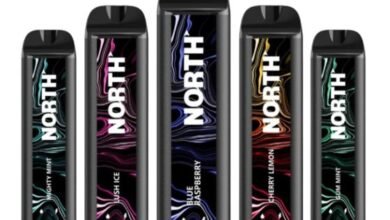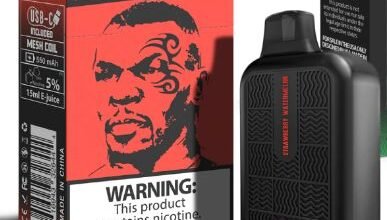Nizoral for Psoriasis: Uses, Benefits, and Effectiveness
Nizoral for Psoriasis: Uses, Benefits, and Effectiveness

Psoriasis is a chronic skin condition that affects millions of people worldwide, with its hallmark being red, scaly patches that can cause discomfort and impact daily life. While the exact cause of psoriasis remains unknown, it’s widely believed to be an interplay between genetics, immune system abnormalities, and environmental triggers. Though there is no cure, there are numerous treatments available to manage its symptoms. Among them, Nizoral—commonly known as an antifungal shampoo—has garnered attention for its role in psoriasis management. But does it work? This blog explores the specifics of Nizoral’s utility in addressing psoriasis and how it compares to other treatments.
If you’re battling the challenges of psoriasis, keep reading to uncover how Nizoral can fit into your personalized skincare routine.
What is Psoriasis? Symptoms and Common Treatments
Psoriasis is more than a skin-deep issue; it’s an autoimmune condition that accelerates the skin’s lifecycle, leading to the rapid buildup of cells on the surface. This results in inflammation, raised patches, scaling, flaking, and itching, often appearing on the scalp, elbows, knees, or lower back. For some, symptoms can range from mild to severe, potentially interfering with quality of life.
Common treatments for psoriasis include:
- Topical Treatments such as corticosteroids, Vitamin D analogs, and salicylic acid.
- Systemic Medications like biologics and oral medications for severe cases.
- Phototherapy, which uses controlled exposure to UV light.
However, some people find these options limited by cost, side effects, or diminishing effectiveness over time. This has led to the exploration of alternative solutions, including over-the-counter antifungal treatments like Nizoral.
Understanding Nizoral’s Role in Psoriasis Management
Typically marketed to treat dandruff and seborrheic dermatitis, Nizoral has gained attention as a potential option for managing psoriasis, particularly scalp psoriasis. This connection arises because scalp psoriasis symptoms, such as flaking and redness, can overlap with dandruff-like issues caused by yeast overgrowth. Nizoral’s active antifungal ingredient, ketoconazole, comes into play as an inflammation-reducing agent, which can help manage the condition’s impact.
Although Nizoral is not officially marketed for psoriasis, it has grown popular as a complementary treatment due to its reputation for soothing irritated skin and reducing scaling.
The Active Ingredient in Nizoral—How Ketoconazole Works on Psoriatic Skin
Ketoconazole, the superstar active ingredient in Nizoral, is a potent antifungal agent that primarily works by inhibiting the growth of fungi like Malassezia. While fungi aren’t the root cause of psoriasis, they can exacerbate symptoms like scaling, redness, and itching in scalp psoriasis cases.
Here’s how ketoconazole’s properties may benefit psoriatic skin:
- Anti-inflammatory Action: Ketoconazole’s ability to curb inflammation provides relief for itching and irritation.
- Scalp Barrier Support: By addressing fungal imbalances on the scalp, Nizoral helps maintain a healthier scalp environment, which may alleviate some psoriasis symptoms.
That being said, it’s important to understand that ketoconazole is not a primary treatment for immune-driven causes of psoriasis. Instead, it shines as a supportive element in a broader management plan.
Nizoral vs. Other Psoriasis Treatments
How does Nizoral compare to other common treatments for psoriasis? Here’s a breakdown to help you evaluate its utility:
|
Nizoral |
Corticosteroids |
Salicylic Acid |
Biologics |
|
|---|---|---|---|---|
|
Effectiveness |
Moderate (for mild cases or scalp psoriasis) |
High (short-term use) |
Mild to Moderate |
High (especially for severe cases) |
|
Safety |
Generally safe for over-the-counter use |
Risk of skin thinning |
Can cause dryness |
Requires medical supervision |
|
Cost |
Affordable, over-the-counter |
Moderate |
Affordable |
Often expensive |
|
Ease of Use |
Simple, shampoo application |
Cream, lotion, or ointment |
Topical application |
Injection or IV |
Nizoral is not intended to replace treatments like corticosteroids or biologics, but it is easier to incorporate for mild to moderate cases or as an add-on in your overall strategy.
How to Use Nizoral for Psoriasis
Frequency and Best Practices:
- Use Nizoral as a shampoo, applying it to the affected areas of your scalp 2-3 times weekly.
- Leave it on for 3-5 minutes to allow the ketoconazole to penetrate the skin effectively.
- Rinse thoroughly and follow up with a moisturizing shampoo or conditioner to prevent dryness.
- Avoid excessive use to reduce the risk of irritation.
Pro Tip: Always perform a patch test before fully incorporating new treatments to ensure compatibility with your skin.
Success Stories with Nizoral in Psoriasis Management
User testimonials highlight varying results from using Nizoral for psoriasis, mostly in cases involving mild scalp symptoms. Here are two examples:
- Hannah’s Story (Scalp Psoriasis): “I’ve tried steroids and prescription shampoos, but adding Nizoral to my routine made a world of difference. It reduced the itching within a week!”
- Mark’s Experience (Mild Psoriasis): “I deal with periodic flare-ups. Nizoral helps control the scaling and keeps my skin calmer compared to when I skip its use.”
Results can depend on the severity of your psoriasis, making it essential to use Nizoral within a broader treatment plan.
Potential Side Effects
Like any treatment, Nizoral comes with potential side effects, although they are relatively rare when used as directed. These include:
- Scalp dryness or irritation
- Discoloration of hair (temporary)
- Allergic reactions (in extremely rare cases)
Mitigation Tips:
- Pair Nizoral with a hydrating shampoo.
- Use a smaller amount initially to test your skin’s tolerance.
If severe irritation occurs, discontinue use and consult a dermatologist.
Integrating Nizoral Into Your Comprehensive Psoriasis Plan
To effectively manage psoriasis, Nizoral works best as part of a holistic plan that includes:
- Topical Treatments for deeper inflammation control.
- Dietary Adjustments to reduce potential triggers, like processed foods and alcohol.
- Stress Management Techniques, such as mindfulness and meditation, to address emotional triggers.
- Regular Dermatologist Consultations to monitor your condition and adjust treatments as needed.
By combining these approaches, you can take greater control of your symptoms and improve your quality of life.
Take Control of Your Psoriasis Today
While Nizoral offers promising support for individuals with mild to moderate scalp psoriasis, it’s not a one-size-fits-all solution. Its real strength lies in complementing established treatment plans, improving scalp health, and reducing symptom severity.
To find out if Nizoral is right for you, consult with a healthcare professional or dermatologist. The right strategy, tailored to your condition, can make all the difference in reclaiming comfort and confidence in your skin.
Don’t wait—take the first step toward healthier skin today.



